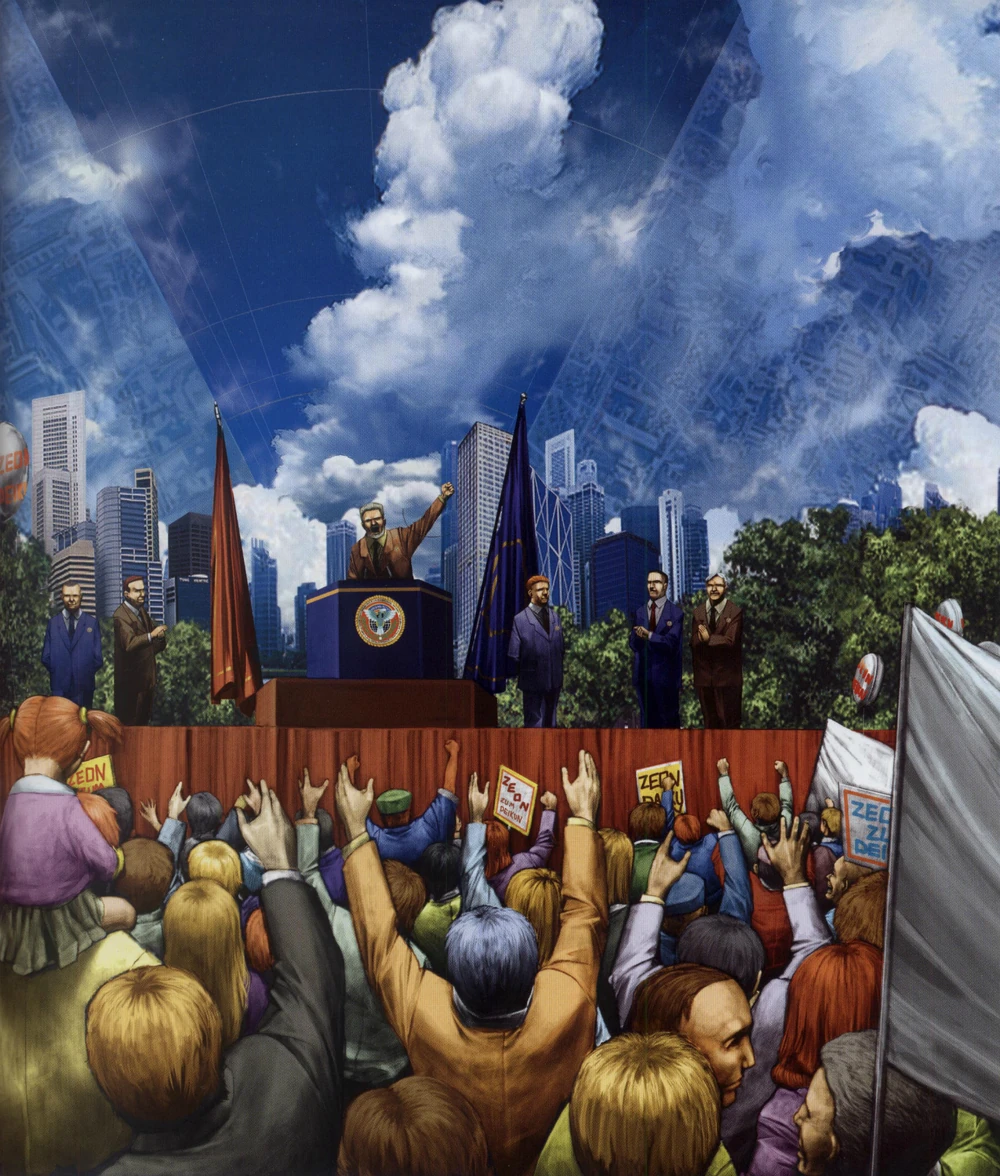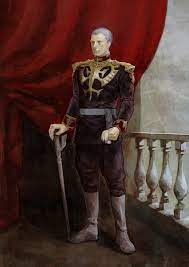The Principality of Zeon is not only known for its military might and galactic expansionism but also for the ideological manipulation it employed to consolidate its rule and justify its aggressive actions. One of the key tools in its propaganda arsenal was the use of religion and mythology—elements that, while not always explicit, were fundamental in forging its identity and reinforcing its cause.
The Figure of Zeon Zum Deikun and the Mythification of Leadership
From the early moments of the Principality of Zeon’s formation, the figure of Zeon Zum Deikun, its founding ideologue, played a pivotal role in constructing a mythological narrative. Deikun was regarded by many as a kind of prophet or enlightened leader whose message of liberation through the independence of space colonies carried a strong spiritual undertone. While his ideas were not explicitly religious, the way his followers interpreted and adapted them gave them an almost mystical quality. His death was perceived as a sacrifice for the cause of superior humanity, further fueling the legend.

Manipulating Faith and the "New Humanity" Concept
The concept of a “New Humanity” was central to Zeon’s propaganda, particularly under the rule of the Zabi family. To solidify their power, Zeon’s leaders promoted the idea that human evolution in space, represented by the Newtypes, was a divine destiny. This concept was woven into a kind of modern mythology, framing Zeon’s rise as the fulfillment of a cosmic prophecy. This vision not only justified war and expansion but also underscored notions of genetic superiority and disdain for Earth’s inhabitants.
The Zabi Family’s Cult of Personality
The charismatic leadership of Gihren Zabi was crucial in shaping the mythology of the Principality of Zeon. Gihren skillfully manipulated popular beliefs, portraying himself as the chosen leader to guide humanity into a new era. Through apocalyptic and militaristic rhetoric, Gihren argued that only through war could humanity achieve its true potential. This idea of rebirth through conflict was presented as a near-divine mandate. The veneration of Zeon as a quasi-religious figure reached its peak with the creation of monuments and symbols representing the will of the "new humanity."

Rituals and Symbols of the Principality
Alongside religious ideology, the Zabis employed a series of rituals and symbols to strengthen the sense of community and faith among Zeon’s followers. The emblem of Zeon, with its five-pointed star, symbolized not only unity and strength but also the spiritual enlightenment of humanity. Military gestures and ceremonies evoked the solemnity of a militaristic religion, where dying for Zeon’s cause was seen as a sacred sacrifice. Zeon soldiers fought not just for a political ideal but for a transcendent mission.
Religion’s Role in Resistance
Interestingly, even the Earth Federation, Zeon’s counterpart, used religion and mythology to motivate its citizens. However, in Zeon’s context, religious beliefs were primarily exploited to justify violence and imperial dominance. Religion as a justification for war became a recurring theme in Zabi speeches, asserting that conflict was inevitable and part of a cosmic design. This was intertwined with the notion of a superior humanity that could only emerge from the sacrifice and destruction of the old order.
The Principality of Zeon used religion and mythology not only as tools for maintaining social control but also as instruments of political justification. The fusion of nationalism, religion, and genetic superiority served to mobilize Zeon’s forces in war and to solidify a cult of personality around the Zabi leaders. Zeon’s history illustrates how ideological manipulation can turn a military conflict into a mystical crusade, intertwining leaders’ ideals with religious beliefs to maintain power and justify violence.
What’s your take on the use of religion in politics and war?
In Gundam’s context, does Zeon represent a dangerous model or merely a fictional depiction of how leaders manipulate the masses? Share your thoughts in the comments! And don’t forget to explore more articles about Zeon and other fascinating Gundam topics on our blog. Your opinion matters!


